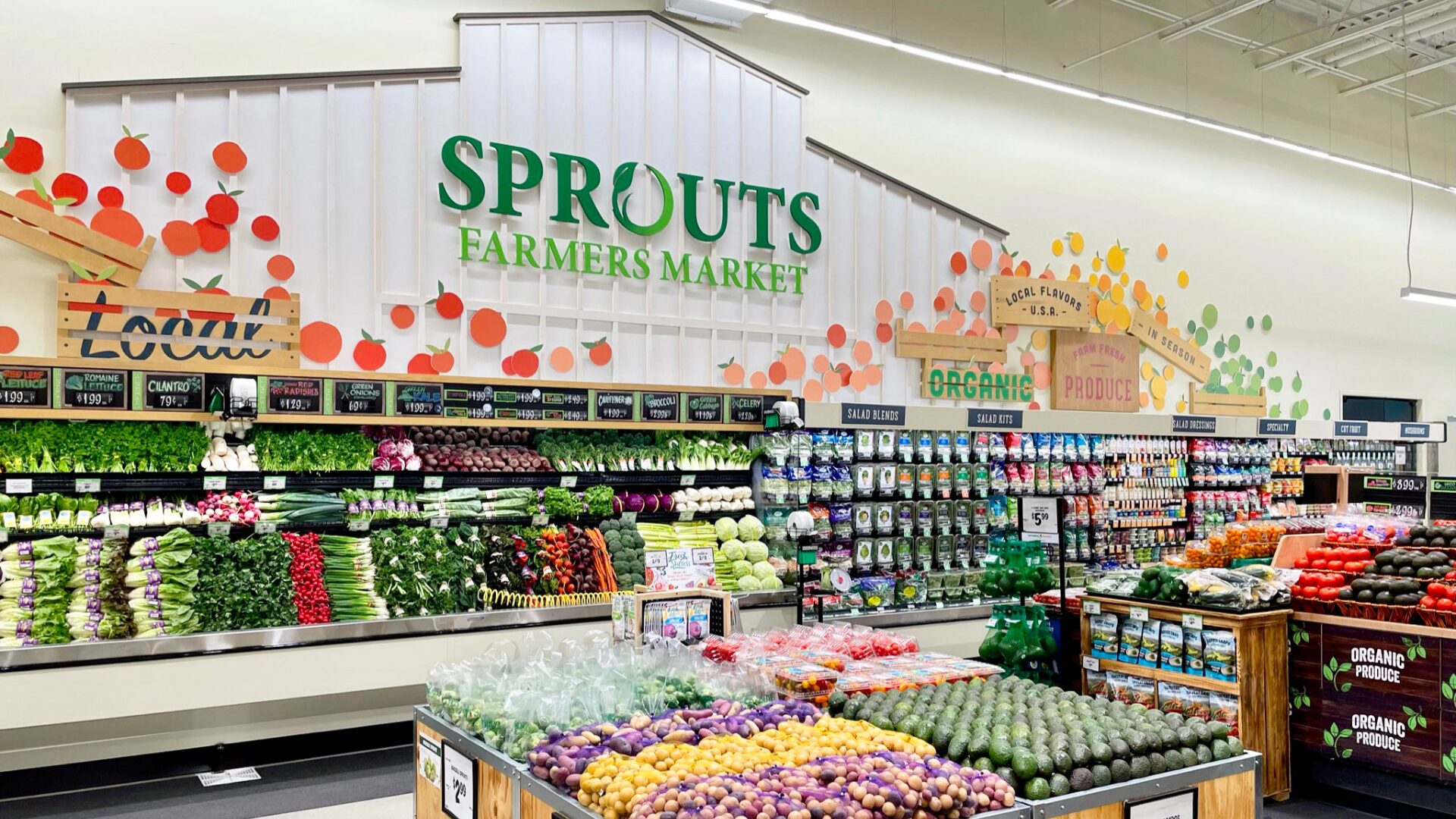The largest grocery chains in the U.S. are shifting to better offer plant-based foods, according to the Good Food Institute (GFI).
In the “Good Food Retail Report,” GFI evaluated the top 15 U.S. food retailers according to product assortment, as well as four merchandising and marketing of plant-based meat, egg, and dairy products.
Whole Foods was given a top five-star rating in product assortment, making it one of the retailers at the forefront of the plant-based movement. Featuring plant-based meat in prepared foods and foodservice sections can increase trial and customer access to convenient plant-based foods and meals, driving purchase of the on-shelf product.
“Whole Foods Market has long been a champion of plant-based eating,” said Jeff Turnas, SVP of global culinary procurement and operations at Whole Foods. “We feature a wide variety of alternative protein options across our store, including high-quality chef-inspired vegan and vegetarian options in our Prepared Foods Department, which includes our Chef’s Case, salad bar, hot bar, and a variety of convenient grab-and-go items.”
Wegmans had the most plant-based products on shelf, with more than 500 SKUs. The retailer offered two times the number of plant-based meat SKUs than the average retailer covered in the report, with more than 100 across refrigerated and frozen sections.
Giant and King Soopers tied for best signage, displaying prominent aisle signage in the the refrigerated and frozen plant-based meat sets and communicating plant-based at a product level with shelf tags, while Target had “excellent” examples of plant-based shelf tags used consistently.
Plant-based meat is also increasingly being merchandised in the meat aisle. “Traditional meat eaters and flexitarians are embracing plant-based products, which means it is critical for retailers to employ plant-based strategies that attract the mainstream consumer,” said Caroline Bushnell, GFI associate director of corporate engagement. “Plant-based eating is no longer niche. Retailers are leaving money on the table when they isolate plant-based sets in hard-to-find sections or use exclusive category language, like ‘vegetarian.'”
By merchandising plant-based meat, eggs, and dairy alongside their conventional counterparts, retailers can make plant-based options more accessible to the many shoppers who purchase both options.
When plant-based milk was moved to the refrigerated milk area a decade ago, this was key to introducing it to a larger consumer base, as well as growing category sales and increasing household penetration. Ninety-one percent of retailers deploy integrated merchandising for multiple categories beyond plant-based milk. However, not a single retailer was awarded five stars in the merchandising category, revealing that retailers need to more consistently incorporate best practices across plant-based categories.
With the plant-based shopper spending 61% more than the average shopper, it is important retailers provide a large assortment of plant-based products in order to keep these customers while also attracting new customers.
Sales of plant-based foods are outpacing total food sales amid the coronavirus pandemic, according to research from the Plant Based Foods Association and SPINS. Sales of plant-based foods jumped 90% in March as U.S. consumers entered a peak panic buying phase compared to March 2019, and increased by 27% in the four following weeks.
“Since the beginning of the pandemic, there has been a continued shift in consumer purchasing toward natural and organic products that enhance health and immunity,” said Tony Olson, owner and CEO of SPINS. “Our data shows the plant-based meat boom of last year continues and as reports of animal-based meat shortages increase, we can expect plant-based meat to gain even more traction.”
In particular, refrigerated plant-based meat retail sales spiked at 241% (compared to 2019) during peak panic buying and grew at 113% over the four-weeks following peak panic buying. Plant-based cheese retail sales grew at 95%, while tofu and tempeh retail sales spiked as well, with growth at 88%.
“These strong numbers prove that the plant-based industry is here to stay and will only continue to grow,” said Michele Simon, executive director of the Plant Based Foods Association.
However, as a May 26 Reuters article warned, plant-based meats may see their coronavirus-related boom recede as traditional meat prices fall back to pre-pandemic levels. Additionally, around 40% of people earning over $100,000 buy plant proteins and that percentage declines as incomes fall, according to IRI.








